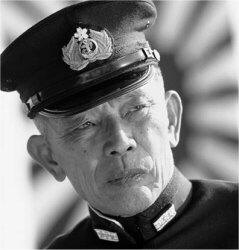|
In Remembrance: Mako
Born Makoto Iwamatsu on December 10, 1933 in Kobe, Japan, Mako was raised by his grandparents after his parents moved to New York to study art when he was five years old. By virtue of living on the East Coast, Mako’s parents avoided being sent to the internment camps during World War II, avoiding the fate the befell Japanese immigrants on the West Coast. Instead, they found work at the U.S. Office of War Information and later were granted residency. Mako immigrated to the U.S. to join his parents when he turned 15. Mako enrolled at the Pratt Institute with the intention of becoming an architect. However, he discovered acting when a friend asked him to design a set for an off-Broadway children’s play. He soon began spending so much time pursuing acting that his grades dropped to the point where he lost his draft deferment. Spending two years in the military, Mako was stationed in Korea and Japan. Upon his discharge, he settled in California to study theater at the Pasadena Playhouse. In 1965 Mako helped to found the East West Players, the nation’s first Asian American theater company. As artistic director of the company, he staged performances of works from Shakespeare to contemporary playwrights. For the group’s 1981 season, Mako dedicated the entire schedule to plays that examined the internment of Japanese Americans during World War Two. After making a few television appearances, Mako made his big screen debut in the 1966 in the Disney comedy The Ugly Dachshund. But it was his next role, in the Steve McQueen-starring vehicle The Sand Pebbles, that earned him his first major recognition. Mako managed to infuse the role of Po-han, a Chinese “coolie” working in the engine room of the Yangtze River patrol boat manned by McQueen, with a sense of honor and dignity which earned the actor an Academy Award nomination for Best Supporting Actor. Mako used the exposure of the nomination to lobby for better roles for Asian American actors, encouraging producers and directors to cast Asian Americans in non-race specified roles. In addition to his many television appearances, Mako made appearances in such films as The Hawaiians (1970), The Killer Elite (1975), Under The Rainbow (1981), Conan The Barbarian (1982) and its sequel Conan The Destroyer (1984), Tucker: The Man And His Dream (1988), Rising Sun (1993), Seven Years In Tibet (1997), Pearl Harbor (2001) and Memoirs Of A Geisha (2005). Mako also continued to appear in stage productions around the country. In 1976, he earned a Tony Award nomination for his role in the Stephen Sondheim musical Pacific Overtures. His final film role was in the supernatural thriller Rise which is scheduled for release later this year. |
 Mako, the Academy Award nominated actor who always worked to
encourage more and better roles for Asian American actors, has
passed away on July 21, 2006 in Ventura County, CA. He was 72.
Mako, the Academy Award nominated actor who always worked to
encourage more and better roles for Asian American actors, has
passed away on July 21, 2006 in Ventura County, CA. He was 72.